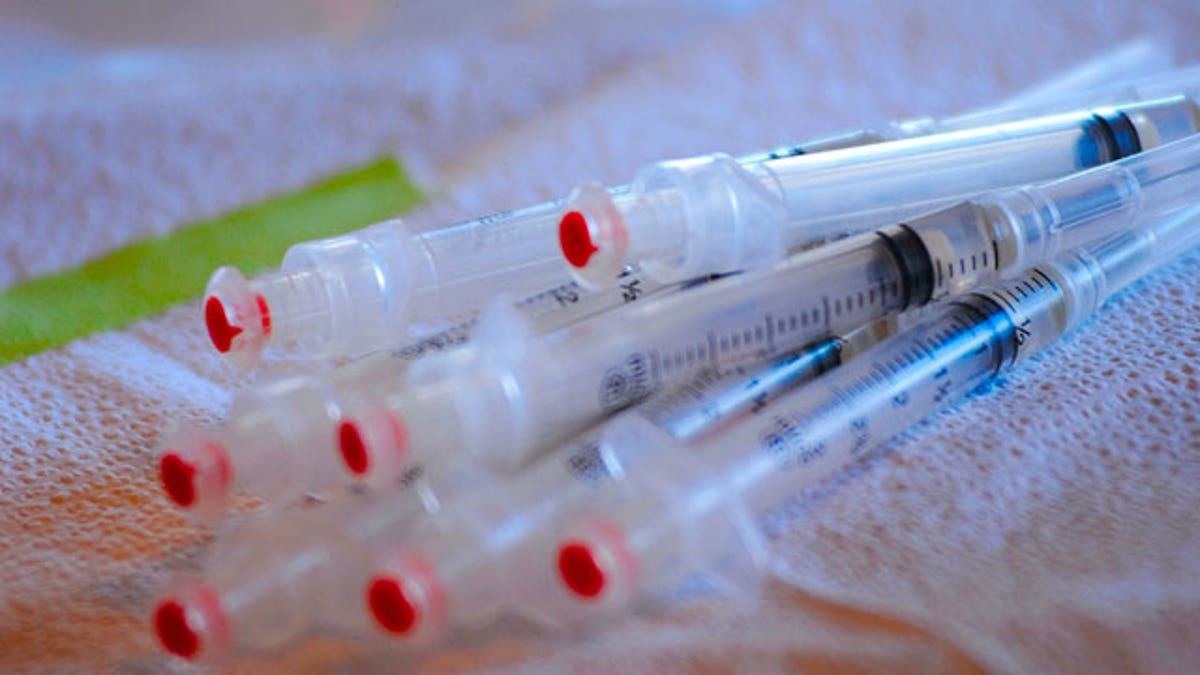
Children will be better protected against pneumonia and other infections caused by the pneumococcus bacterium with this year's updated immunization schedule, experts say.
The number of vaccinations kids should get hasn't changed, but authorities now recommend using Pfizer's Prevnar 13, or PCV13, which guards against six more types of pneumococcal bacteria than the earlier version, PCV7.
"Parents should feel very good about immunizing their children," said Dr. Neal Halsey, who heads the Institute for Vaccine Safety at Johns Hopkins Bloomberg School of Public Health in Baltimore.
"We are preventing millions of cases of disease, hundreds of thousands of hospitalizations and tens of thousands of deaths with these vaccines every year."
The new vaccine schedule was approved by the U.S. Centers for Disease Control and Prevention, the American Academy of Pediatrics and the American Academy of Family Physicians.
It also includes guidance for administering Hepatitis B vaccine to kids who didn't receive the recommended birth dose; a minimum age of 24 weeks for dose 3 of the vaccine has been recommended.
For children 7 through 10 years of age who are not fully immunized against pertussis, they should receive a single dose of tetanus toxoid, reduced diphtheria toxoid, and acellular pertussis vaccine (Tdap).
Halsey, who was not involved in updating the schedule, said PCV13 protects against more than 90 percent of pneumococcal infections, including pneumonia, meningitis and middle ear infections, which are commonly caused by the bacteria.
More than a million Americans end up in the hospital every year with pneumonia, and in 2007 alone some 52,000 people died from the disease, according to the CDC.
Among kids under five, pneumococcus bacteria lead to nearly 5,000 cases a year of meningitis, bloodstream infections and other serious illnesses.
While the number of such infections took a nosedive after PCV7 came into use in 2000, "We anticipate that there will be a further decline in disease" with the new vaccine, Halsey told Reuters Health.
Although most parents do follow the recommended vaccination schedule, some have been leery of the shots, fearing they might damage toddlers' brains.
The mercury-based preservative thimerosal, which at this point is no longer used in childhood vaccines other than flu shots, has stoked concerns, for instance. And others have worried that giving kids several shots over a short interval might overload their developing immune systems.
But there is no credible evidence to bolster any of those concerns, said Dr. Michael J. Smith, a pediatrician at the University of Louisville School of Medicine in Kentucky.
In a study last year, he found kids who'd gotten a lot of shots did just as well on psychological tests as those who'd had fewer.
And while no study has ever linked thimerosal to autism, Smith told Reuters Health, the chemical has now been removed from all childhood vaccines, except flu shots.
"For those parents who are still concerned," Smith added, "there are flu vaccines available that don't contain thimerosal."
Vaccinations can cause swelling and soreness at the injection site, as well as mild fever in some cases. But serious side effects such as severe allergic reactions are very rare, less than one in a million, according to Halsey of Johns Hopkins.
"Those risks are thousands of times smaller than the risks of the diseases that are prevented," he said.
